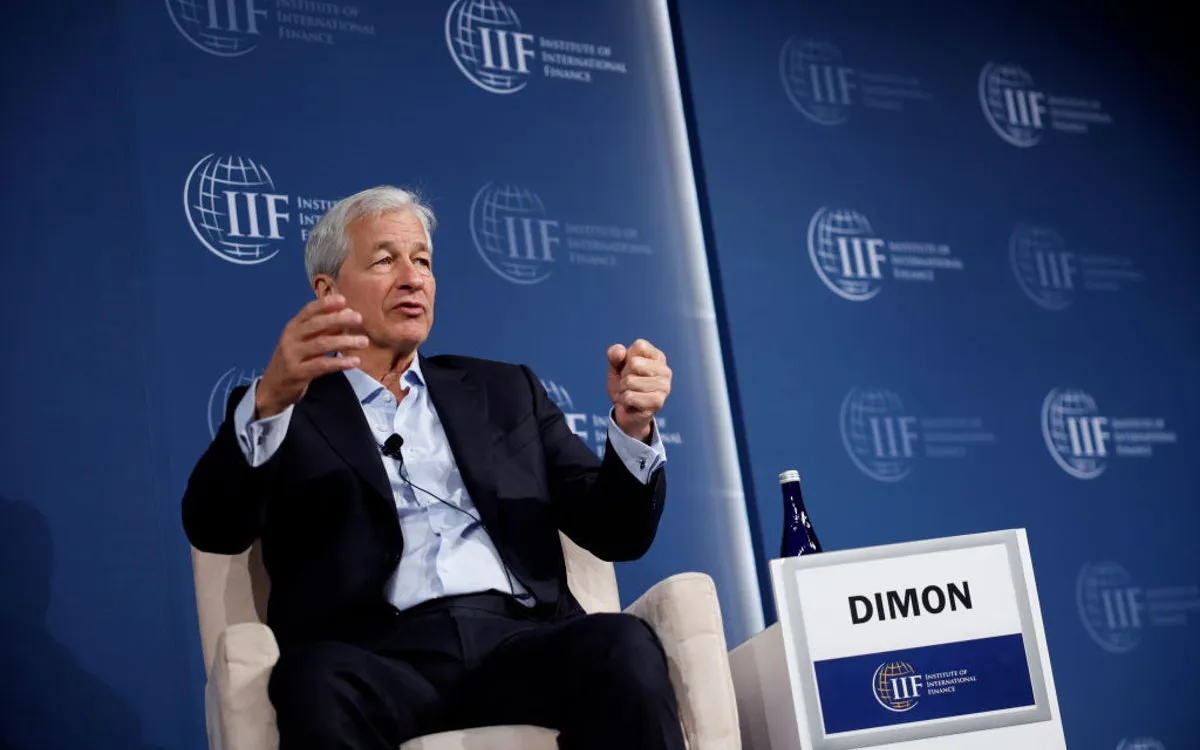
In a recent address in Ireland, JP Morgan Chase CEO Jamie Dimon expressed his thoughts on President Donald Trump's approach to trade tariffs. Dimon commended Trump for not implementing his extensive tariffs but cautioned that the president's tendency to retreat after making bold threats could lead to market complacency.
During the event organized by the Irish Foreign Ministry, Dimon criticized the derogatory acronym coined by analysts to describe Trump's behavior: TACO, which stands for "Trump Always Chickens Out." He remarked, “I hate to use the word ‘TACO trade’ because I think he did the right thing to chicken out.” However, he also pointed out that the current market's confidence may not last indefinitely, implying that the unpredictable nature of Trump's trade policies could have lasting implications.
Dimon’s remarks come at a time when Trump has reaffirmed his commitment to imposing high tariffs on imports as a strategy to reshape the U.S. economy. In a post on Truth Social, Trump declared that new import tax rates would take effect on AUGUST 1, 2025, stating, “There has been no change to this date, and there will be no change.” He emphasized that all dues would be payable starting on this date, leaving no room for extensions.
Trump's recent threats to impose tariffs ranging from 25% to 40% on imports from countries like Japan, South Korea, Burma, Kazakhstan, Laos, Malaysia, and South Africa indicate a significant shift in U.S. trade policy. In a series of letters to foreign leaders, Trump cited 'unsustainable' trade deficits as justification for these tariffs, which he insists are necessary for restoring a manufacturing-based economy in the United States.
Despite Trump's claims that tariffs are ultimately paid by foreign governments, they are actually import taxes levied by the U.S. federal government. These costs are typically passed on to consumers, resulting in higher prices for goods. This economic reality raises questions about the long-term viability of Trump's tariff strategy, especially given the potential backlash from both consumers and international trading partners.
The announcement of these new tariffs and the specified deadline has heightened tensions in the global market, particularly as the previous deadline of July 9 for countries to negotiate agreements with the Trump administration loomed. This follow-up comes after Trump initially backtracked on similar tariffs due to negative market reactions, indicating the fragile nature of his trade policies.
As Dimon aptly noted, the current state of the market reflects a sense of complacency regarding Trump's trade decisions, but the uncertainty surrounding these policies suggests that investors should remain vigilant. The economic landscape continues to evolve, and the implications of Trump's tariffs will likely unfold in the coming months.